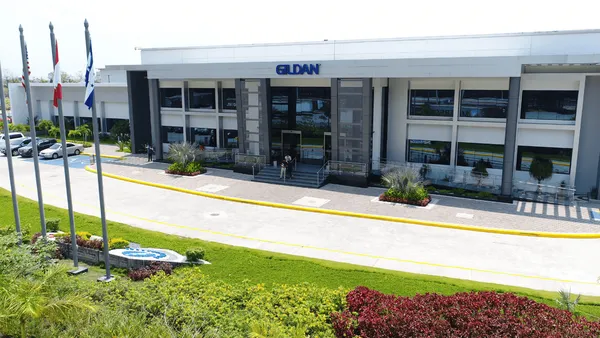UPDATE: May 11, 2022: A state appeals court dismissed New York Attorney General Letitia James’s lawsuit against Amazon over worker protections from COVID-19 and alleged retaliation.
In an order, the court said the state’s lawsuit against Amazon is preempted by federal law, which covers the same worker issues, while deeming a request for an injunction forcing Amazon to comply with state pandemic guidelines as moot given that New York guidance has changed.
The court pointed to an ongoing proceeding with the National Labor Relations Board “involving essentially the same allegations” and said that ruling on the case could interfere with the NLRB's jurisdiction. Amazon did not immediately respond to request for comment.
Dive Brief:
- New York Attorney General Letitia James has filed a lawsuit against Amazon that argues the e-commerce giant failed to adequately protect employees from COVID-19 at a Staten Island fulfillment center and a Queens distribution center, and retaliated against two employees who spoke out for better health protections.
- In the complaint, James alleges that Amazon failed to provide adequate contact tracing, as well as cleaning and sanitation protocols, forced employees to work in an environment without social distancing, and often did not close portions of facilities after learning of employees with positive COVID-19 cases were in the area.
- Last week, Amazon preemptively sued the attorney general for making "exorbitant demands [that] are based on a standard for workplace health and safety far more stringent than the standard adopted" elsewhere by James' office. In its suit, Amazon said it has "taken extraordinary, industry-leading measures grounded in science, above and beyond government guidance and requirements" to protect its workers from COVID-19.
Dive Insight:
Among the most active operators in the retail world during COVID-19's initial surge last spring, Amazon's employees were on the front lines of the pandemic early on, along with grocery stores and other retailers deemed essential.
By the company's count, 19,816 employees had tested or been presumed positive for COVID-19 by October, which Amazon said is 42% lower than what it would have expected based on positivity rates within the general population. At the Staten Island plant, 250 workers tested positive or had a diagnosis for the disease, according to the lawsuit. The attorney general alleged that Amazon never shut the plant down and only performed "partial and inadequate closings" on seven occasions, despite 90 of the workers having been in an Amazon facility within seven days of their test or diagnosis, and 30 within 24 hours.
In the lawsuit, James also targeted Amazon's productivity protocols that track employee speed throughout their shifts, which she notes the company said it paused temporarily during the pandemic, though without communicating it to employees in writing, before resuming. "Faced with this risk of adverse consequences and discipline, some employees understandably do not take all appropriate health precautions and instead, rush back from breaks, do not take sufficient time to wash and sanitize their hands and workstations, and do not consistently adhere to safe social distancing," the complaint alleges.
In its own complaint against the attorney general, Amazon said it sent emails and provided other communication to employees in July about the pause in its productivity protocols and reinstated them in October with revisions to account for proper health procedures among employees.
As for allegations that Amazon didn't perform adequate testing of employees, the company said that, after setting up its testing network over the course of the pandemic, it now tests more than 700 employees every hour, and its labs have tested one million people across its global operations. That is in addition to the long laundry list of COVID-19 prevention measures that Amazon outlined in its lawsuit against the attorney general last week, and which Amazon said "go well beyond measures" that the attorney general's office "has deemed comprehensive."
The dual lawsuits between New York and Amazon are one skirmish in a broader conversation around the liability and responsibility of employers in protecting employees against the spread of COVID-19. It is of special relevance to retail, where store workers interact broadly with the public and are also tasked with enforcing safety protocols while carrying out other duties. As with all liability issues, the central question is how much is enough.













